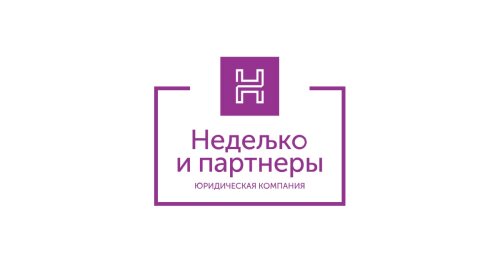Best Whistleblower & Qui Tam Lawyers in Moscow
Share your needs with us, get contacted by law firms.
Free. Takes 2 min.
List of the best lawyers in Moscow, Russia
About Whistleblower & Qui Tam Law in Moscow, Russia
Whistleblower and Qui Tam law in Moscow, Russia are legal fields that involve reporting illegal activities, fraud, or corruption typically within a government or corporate setting. Qui Tam is a provision from the US legal system that allows individuals to file lawsuits on behalf of the government, but a similar mechanism can be found in Russian legislation under different terms. Russian law provides certain protections for whistleblowers to encourage them to report misconduct without fear of retaliation, although it is not as comprehensive or incentivized as the American Qui Tam provisions.
Why You May Need a Lawyer
Legal assistance may become essential in situations where an individual has knowledge of corruption, fraud, or other illegal activities and wants to report it while ensuring personal safety and compliance with the law. Lawyers can provide guidance on the legal process, help maintain anonymity, and seek protection against potential retaliation from employers or other parties. They are particularly crucial when a whistleblower must navigate complex legal systems, understands potential compensation mechanisms, or when the implicated parties are powerful and influential.
Local Laws Overview
The key aspects of local laws relevant to Whistleblower & Qui Tam in Moscow, Russia, are mainly focused on providing protections under labor laws and specific legislation designed to combat corruption. Federal laws typically include provisions that prohibit the dismissal or discrimination against employees who report illegal activities. There might also be relevant sections in criminal and administrative codes penalizing acts of retaliation against whistleblowers. It should be noted, however, that while protections exist on paper, enforcement can be uneven and cultural attitudes towards whistleblowing can affect actual security and outcomes.
Frequently Asked Questions
What legal protections do whistleblowers have in Russia?
In Russia, whistleblowers are protected from firing, demotion, and other forms of employer retaliation under labor laws. However, the effectiveness of these protections can vary in practice.
Can whistleblowers remain anonymous in Russia?
While remaining anonymous is possible, it may be difficult to achieve in practice, and there is no extensive legal framework ensuring the right to anonymity for whistleblowers like in some other jurisdictions.
Is there a financial reward for whistleblowing in Russia?
Unlike the US Qui Tam system, there is typically no financial reward for whistleblowing in Russia, though this can vary depending on the particular case and the outcome of any government action taken.
What types of wrongdoing should be reported?
Wrongdoings that usually should be reported include fraud, embezzlement, public procurement violations, health and safety violations, and environmental crimes.
Are there any statutes of limitation for reporting wrongdoing?
The statutes of limitations vary according to the specific legal breach involved. Consulting a lawyer early on is advisable to avoid missing any deadlines for reporting or filing claims.
What is Qui Tam, and does it apply in Russia?
Qui Tam is a U.S. concept allowing individuals to file claims on behalf of the government and potentially receive a portion of recovered funds. This kind of provision does not exist in Russian law.
Can a whistleblower be sued for making a report?
While legal protections exist, whistleblowers in Russia can face legal action such as defamation lawsuits if the reported information is false or cannot be substantiated.
How confidential is the information provided by a whistleblower?
Confidentiality depends on the channel through which the information is disclosed. Russian law does not provide as robust guarantees as some other countries' laws.
Does whistleblowing have to be about a public organization or official?
No, whistleblowing can also concern private companies, but the protection mechanisms might differ, and risk of retaliation could be more prevalent in the private sector.
What should I do if I experience retaliation for whistleblowing?
You should immediately seek advice from a qualified lawyer who specializes in whistleblower protection to understand your rights and the recourse available to you.
Additional Resources
Individuals looking for additional support and information may consider contacting Russian non-governmental organizations that specialize in corruption prevention and human rights, although specific whistleblower organizations might be scarce. Some international organizations might also offer guidance and support. It is also advisable to stay informed through Russian labor law resources and official governmental portals addressing corruption, labor rights, and public reporting.
Next Steps
If you need legal assistance with matters related to Whistleblower & Qui Tam in Moscow, Russia, the following steps are recommended:
- Document all evidence of wrongdoing thoroughly and securely before approaching an attorney.
- Contact a reputable lawyer with experience in whistleblower cases to discuss the safest and most effective way to proceed.
- Ensure that any disclosures you make are in line with existing legal protections and do not expose you to unnecessary risk.
- Follow your attorney's guidance on navigating the reporting process, protecting your rights, and securing your livelihood.
Lawzana helps you find the best lawyers and law firms in Moscow through a curated and pre-screened list of qualified legal professionals. Our platform offers rankings and detailed profiles of attorneys and law firms, allowing you to compare based on practice areas, including Whistleblower & Qui Tam, experience, and client feedback.
Each profile includes a description of the firm's areas of practice, client reviews, team members and partners, year of establishment, spoken languages, office locations, contact information, social media presence, and any published articles or resources. Most firms on our platform speak English and are experienced in both local and international legal matters.
Get a quote from top-rated law firms in Moscow, Russia — quickly, securely, and without unnecessary hassle.
Disclaimer:
The information provided on this page is for general informational purposes only and does not constitute legal advice. While we strive to ensure the accuracy and relevance of the content, legal information may change over time, and interpretations of the law can vary. You should always consult with a qualified legal professional for advice specific to your situation.
We disclaim all liability for actions taken or not taken based on the content of this page. If you believe any information is incorrect or outdated, please contact us, and we will review and update it where appropriate.














